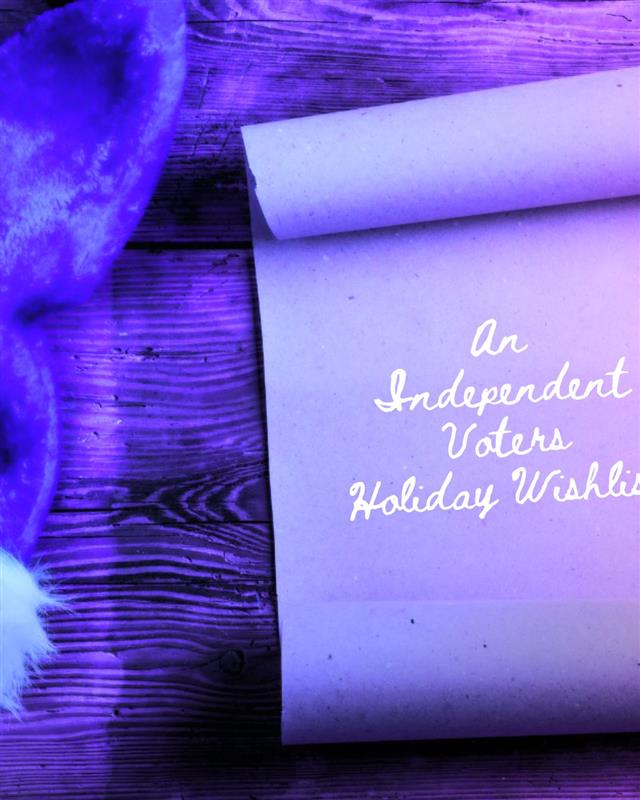Most Voters Prefer Cooperative Representatives
The Big Picture
Voters across the political spectrum prioritize bipartisanship over partisan alignment, according to the Independent Center’s latest 2025 Online State of the Union polling.
- 46% of respondents prefer a candidate who works with both Republicans and Democrats.
- Only 19% prefer a Democrat-aligned representative, while 24% prefer a Republican-aligned candidate.
- The bipartisan preference is strongest among independents (56%) and Democrats (48%), while even 35% of Republicans favor a representative who works across party lines.
This broad preference for cooperation extends to the presidency and Congress, with voters across parties overwhelmingly supporting bipartisan legislative efforts.
Zooming In
Strong Support for Cross-Party Cooperation
When asked, “Would you like to see Donald Trump succeed or fail at working across the aisle to enact bipartisan policies as President?” (OO5), a clear majority (62%) wanted bipartisan success, including:
- 58% of independents
- 46% of Democrats
- 83% of Republicans
Similarly, when asked, “Would you like to see Republicans in Congress succeed or fail at working across the aisle to pass bipartisan policies?” (OO6), the numbers remained consistent:
- 59% of independents supported bipartisan success
- 47% of Democrats supported it
- 80% of Republicans supported it
These results suggest that even in a deeply divided political climate, voters from all backgrounds want their leaders to find common ground.
Administration Approach Preferences
When voters were asked, “Which of the following comes closest to your own opinion about the new Trump administration?” (OO1), they responded:
- 49% - “Personality or policies aside, I hope Trump finds a way to work across the aisle and pass bipartisan measures for our country.”
- 26% - “Trump and his policies are garbage. I hope he fails, regardless of what it means for the country.”
- 26% - “MAGA all the way! Trump and Republicans won the majority and now get to enact their policies for our country.”
Among independent voters, 64% want Trump to focus on bipartisan cooperation rather than an extreme partisan agenda.
Distinction Between Policy Types
Voters distinguish between bipartisan governance and partisan policy wins.
- Only 31% of respondents wanted Trump to succeed at enacting purely MAGA/Republican policies (OO3).
- However, support for Trump succeeding in bipartisan efforts was much higher at 62%—a 15-point increase from purely partisan policies.
These findings suggest that voters are not fully opposed to Trump’s presidency but strongly prefer he govern through bipartisan consensus rather than a hard-right agenda.
Unexpected Unity on National Debt
One of the most surprising areas of bipartisan agreement is the national debt.
When asked about the importance of reducing the debt/deficit (NA1A), support was strong across all parties:
- 66% of Democrats rated it “very/somewhat important.”
- 67% of independents rated it “very/somewhat important.”
- 81% of Republicans rated it “very/somewhat important.”
Furthermore, when asked what success in debt reduction looks like (NA2A):
- 45% said success means “reducing the debt/deficit.”
- 35% would accept “somewhat reducing the national debt and deficit.”
- Only 20% would accept merely “not increasing the debt and deficit.”
This widespread agreement defies conventional wisdom that debt concerns are primarily Republican issues. With two-thirds of Democrats and independents rating debt reduction as a top priority, fiscal responsibility emerges as a key unifying factor in an otherwise divided electorate.
Independent Lens
Voters—especially independents—want leaders who prioritize bipartisanship over partisanship.
- Independents overwhelmingly (56%) prefer representatives who work across party lines.
- They want Trump and Congress to focus on bipartisan solutions—not extreme party politics.
- Fiscal responsibility, particularly debt reduction, is a rare unifying issue that could serve as common ground.
The clear message to elected officials is this: independent voters are looking for pragmatic leadership that focuses on real solutions, not partisan battles.
If Congress and the administration fail to engage in bipartisan problem-solving, independent voters will be the first to hold them accountable in 2026 and beyond.
Subscribe to our newsletter to stay informed on the independent voters and solutions shaping America's future.





%201.jpg)